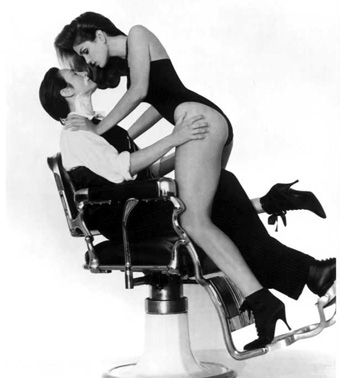Country music traffics, at times, in some pretty tired stories about men and women, but it is crammed to the gills with talented women who have led fascinating lives. Here is a list of four women, whose careers cover the span of country recording, whose examples I would be proud to emulate. And with the exception of the first, they continue to write and perform today.
“Mother” Maybelle Carter
A.P. Carter picked his sister-in-law Maybelle to be the third member (along with his wife, Sara) when he formed his Carter Family trio in 1927. Maybelle played guitar, banjo, and autoharp and sang harmony to Sara’s sharp, almost severe lead vocal. Although their body of work is now canonical, the Carter Family had a rough time of the music-making life and fell apart shortly after A.P. and Sara’s marriage did. Maybelle, though, stayed in the business, touring with her daughters in the 1950s and 1960s and playing on Johnny Cash’s variety show. Apart from being a fine example of how to keep on when others around you are going nuts, Maybelle developed a “scratch” style of guitar playing — sounding the melody on bass strings with her thumb while her fingers filled in the rhythm on the higher strings — that contributed to the guitar’s development as a lead instrument. Here’s an excerpt from the Johnny Cash show that shows off her skills.
Dolly Parton
There are a lot of reasons to love and admire Dolly Parton. Who else can you name with her own line of wigs, Kennedy Center Honors, a theme park with her name on it, a Golden Globe acting nomination, and eight Grammies? And self-awareness? To wit: “If I have one more facelift, I’ll have a beard.” But underneath the rhinestones, the makeup, and the lacquered nails lies Parton’s musical intelligence, in which authenticity and invention combine. A more humane songwriter you never heard.
Parton wrote “I Will Always Love You” in 1974 when she parted musical ways with Porter Wagoner, her duet partner and the man who had groomed her career. It says something about Parton — as a person and as a writer — that the song she wrote about a professional break-up does heartbreaking double-duty as a love ballad.
Emmylou Harris
Harris’s early career is defined by her relationship with Gram Parsons, first as a member of his band, then, after his 1973 overdose death, as a grief-stricken friend trying to make sense of his loss. For the solo albums she produced during the 1970s, she chose wildly talented musicians and impeccable material, weaving country standards with new classics, pop songs, and a few originals. Her career since has continued in similar fashion, and today she is a famously enthusiastic collaborator and interpreter of the Americana songbook. Grief and memory are perennial themes in her work, but her music is anything but moribund. Harris, to me, is somebody who made it through, and continues to make it through, using her gifts to make sense of that passage. Here’s Emmylou in 1977 singing “Making Believe,” originally made famous by Kitty Wells.
Oh, yeah, and you almost forget to mention: sigh, what a gorgeous voice.
k.d. lang
Lang is of course most famous for 1992’s Ingenue, which had only the ghostliest country music inflections, but the native of Canada’s big-sky country got her start playing punky-tonk with her band The Reclines. Her 1988 album Shadowland mixed a few jazz standards in with straight-ahead, unironic Nashville-sound country music. Shadowland was produced by Owen Bradley, who had been Patsy Cline’s Nashville producer, and featured the Jordanaires, Cline’s former backup singers. The album showcased lang’s savant-like vocal talent. Have a gander at — the suit! OMG, sparkles and parachute pants — this Roger Miller cover.
It can be easy to overlook lang’s unreal vocal proficiency because of her image and her famous coming-out in 1992. It’s justly famous. Having mainstream success and being out was a rare thing in 1992, and almost 20 years later, as a culture consumer on the masculine end of the gay lady spectrum, I’m amazed that there was a moment when the avatar of sexy lesbianism was unapologetically butch. Seriously, can you imagine Vanity Fair thinking to run something like this in 2011? 
So, you know, I admire k.d. lang for being insanely talented, for being willing to start a conversation, and for being herself in a notoriously closet-filled corner of the music industry.
I could name others, but let’s discuss in the comments. Who are the country women you admire for their skills, their presence, their professional integrity, or anything else?